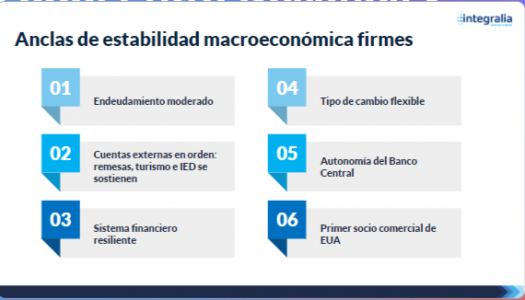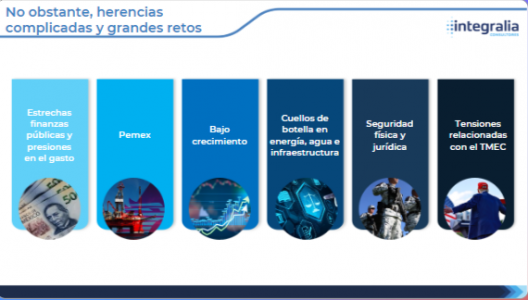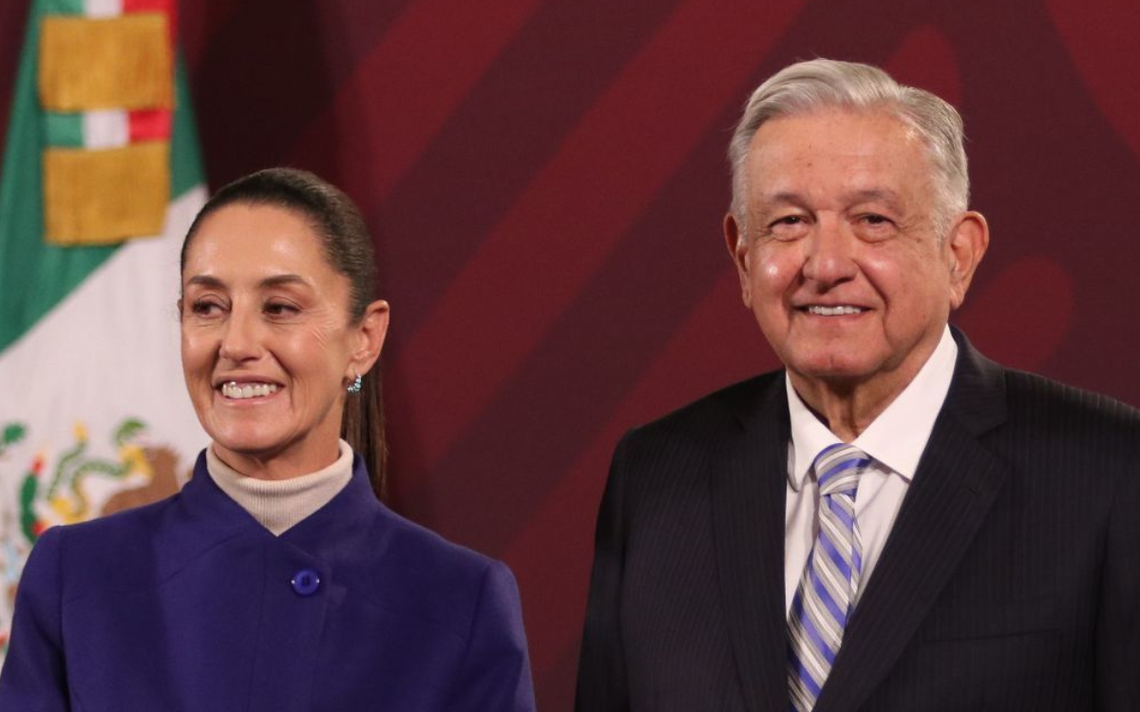The new government that begins next Tuesday in Mexico, headed for the first time by a woman in the person of Claudia Sheinbaum Pardo, will have significant advantages in terms of external accounts and the strength of the financial system. But there are also shadows, such as the growing public spending and the fear that the legal security framework of the country may change due to an excess of power in the hands of the ruling party.
Franklin Templeton presented its analysis “Mexico Horizon 2024-2030, between challenges and opportunities,” developed in collaboration with Carlos Ramírez Fuentes, who is also an executive at the consulting firm Integralia.
Opportunities: Anchors of Economic Stability
On the positive side, Franklin Templeton highlights several key data points:
Moderate Debt: Mexico has not excessively indebted itself as in other times, with debt levels as a percentage of GDP at approximately 55%, entirely manageable for an administration that is expected to maintain the economic fundamentals that have been in place for decades.
External Accounts in Order: Remittances, Tourism, and FDI Remain Strong: The country’s external accounts, once sources of economic collapse, now appear solid. Last year, remittances reached historic levels of $60 billion, tourism revenues are rising, and foreign direct investment also reached unprecedented levels, exceeding $30 billion last year.
Resilient Financial System: The financial system is very solid, with more than adequately capitalized commercial banks and no significant short- or long-term pressures.
Flexible Exchange Rate: The exchange rate serves as the pressure relief valve for financial and macroeconomic pressures. Gone are the days of an exchange rate tied to control policies; today it is flexible, and this is essentially a positive factor for the country.
Autonomy of the Central Bank: Essential for Mexico’s economy, this factor has remained untouched by all governments and will remain so in this one as well. Banxico will remain autonomous.
Top Trading Partner of the United States: Although this is a risky position in the event of Donald Trump’s return to the presidency, the economic benefit for Mexico is evident. Its external sector, based on exports to the world’s largest consumer market, is the driving force of the Mexican economy.

Challenges: Complicated Legacy
Tight Public Finances and Spending Pressures: The country’s public finances are fragile, and the new president’s room for maneuver will be narrow. Markets will be watching this factor closely.
Pemex: The state oil company and its situation pose a risk to Mexico. It will be crucial to see what happens with the company in the coming years, as it could be a factor in a downgrade of the country’s credit rating.
Bottlenecks in Energy, Water, and Infrastructure: The investments that Mexico requires are hindered by a lack of resources. Taking advantage of the nearshoring advantage will require addressing challenges in areas such as energy, water services, and infrastructure in general, and there will be no other options—the government will need to rely on private initiatives to carry out projects, given the fragile state of public finances.
Physical and Legal Security: This is perhaps one of the biggest challenges and risks for the new government, which of course affects investments and the economy. Markets are still evaluating the implications of the recently approved judicial reform, but there are factors such as insecurity that will be closely monitored.
Tensions Related to USMCA: The trade agreement with Canada and the United States will be reviewed in 2026, but a landscape of risks is already emerging, especially due to some changes and decisions such as the expropriation of companies in Mexico, which will create a more challenging environment.

Franklin Templeton is optimistic about the country’s future, stating that it has solid foundations and that so far it has been resilient to the external shocks that have inevitably impacted it for many years.



